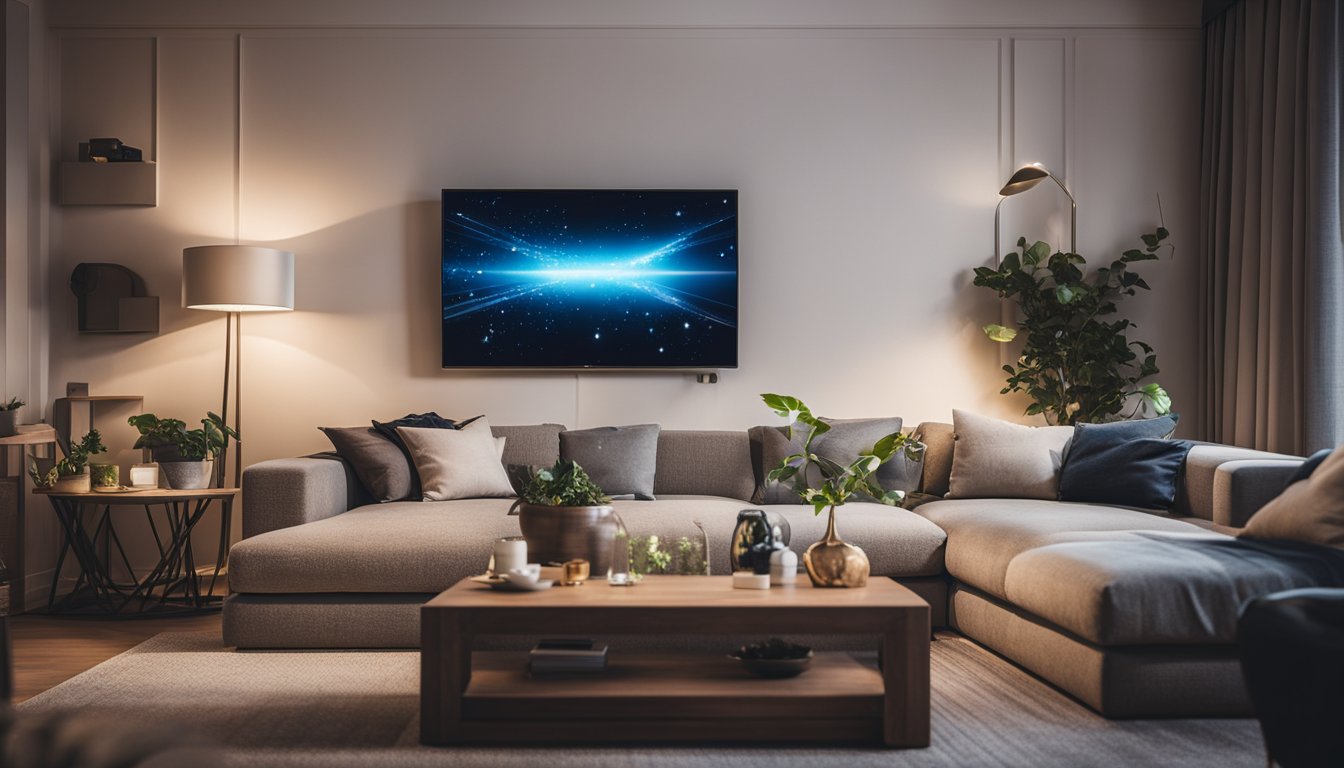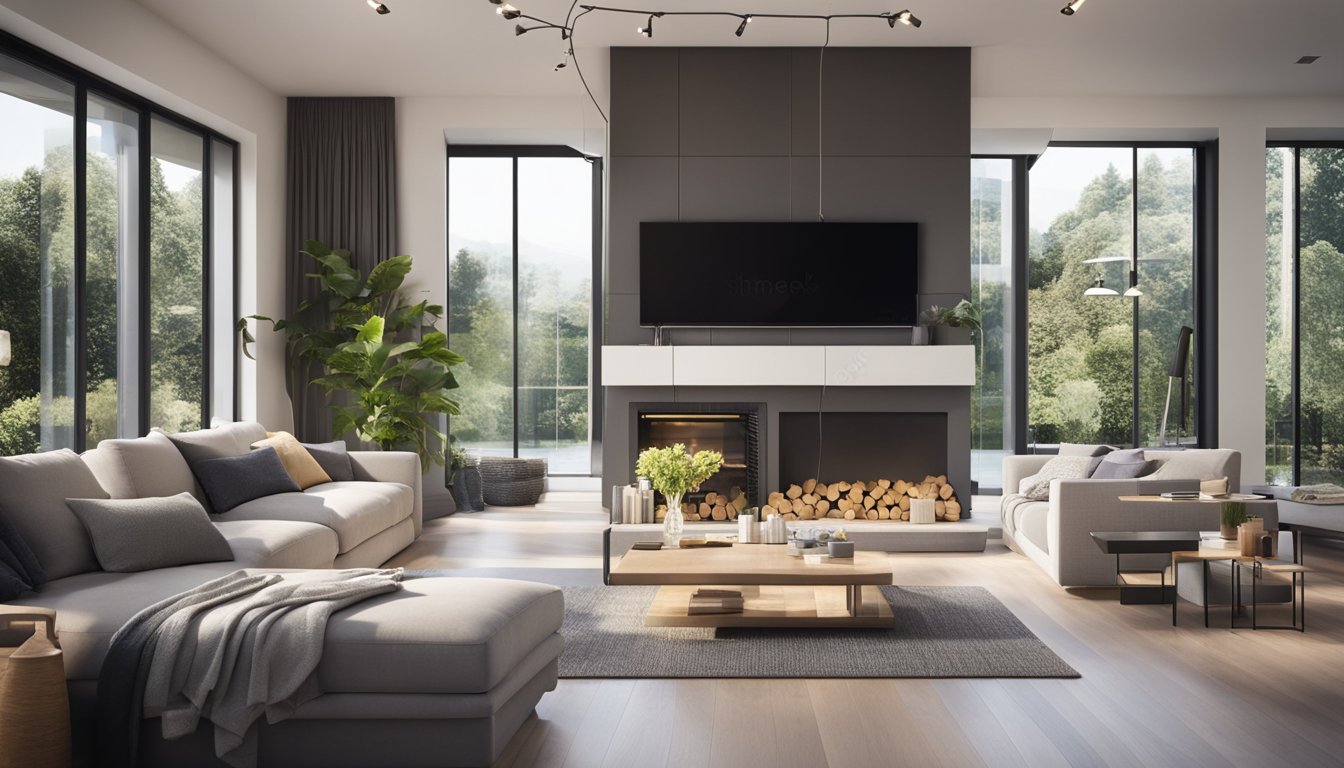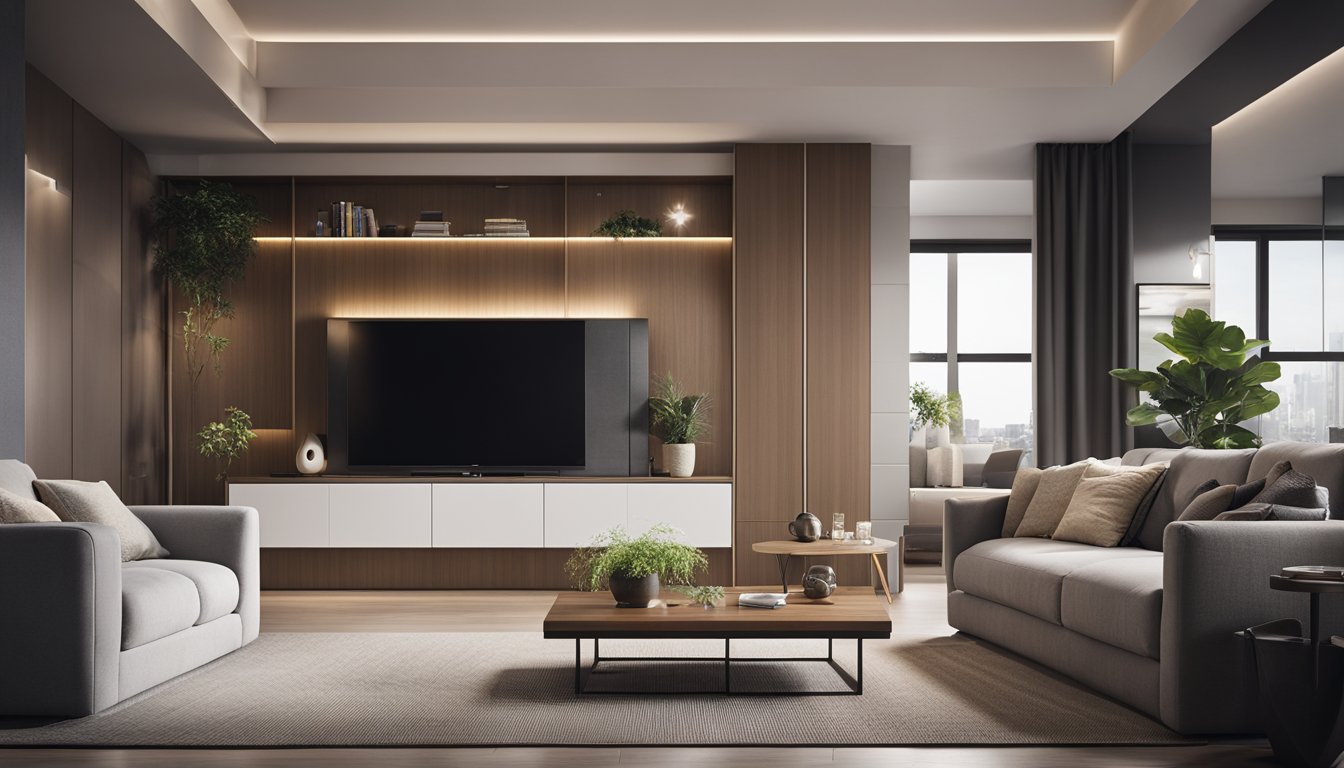Late updated: 26 Mar 2025 15:03
Written by: Daniel Harper
Benefits of Smart Home Technology: Enhancing Modern Living
In today's fast-paced world, the advent of smart home technology is revolutionising how we interact with our living spaces. Smart home systems offer unprecedented control over energy usage, enhancing both convenience and efficiency. By automating tasks like lighting control and temperature adjustments, homeowners can experience increased comfort and a reduction in energy bills. This integration of technology seamlessly into our homes represents a significant step forward in modern living.

This technological leap doesn't just stop at efficiency. Smart home systems significantly boost security, providing peace of mind through features such as automated locks and surveillance cameras. Moreover, the convenience they bring is unmatched, allowing us to manage household tasks remotely and efficiently. Our lifestyle becomes not only more convenient but also safer and more secure as a result.
As we explore the benefits of smart home technology further, it’s clear that these systems can transform daily life, creating a harmonious blend of advanced technology and modern living. They streamline everyday tasks, making our homes not just a place of shelter, but a sanctuary of convenience and innovation.
Key Takeaways
- Smart home technology enhances control over energy use.
- Automation improves security and lifestyle convenience.
- Modern living is transformed through efficient, tech-enabled homes.
Enhancing Home Efficiency and Sustainability

Integrating smart home technologies plays a pivotal role in improving home efficiency and sustainability. By leveraging smart energy management, innovative lighting, and interconnected systems, we significantly optimise energy usage, reduce costs, and lower environmental impacts.
Smart Energy Management
Smart home technology elevates our mastery over energy consumption. Devices like smart thermostats adjust heating and cooling systems automatically, based on occupancy and weather patterns. By significantly diminishing energy waste, they contribute to substantial cost savings.
These intelligent systems enable us to schedule appliance usage, leveraging off-peak electricity rates. By monitoring energy consumption in real-time, we identify inefficient devices. Reducing unnecessary energy use not only decreases our utility bills but also minimises our carbon footprint, leading to a more sustainable lifestyle.
Innovative Lighting and Climate Control
Advanced lighting systems in smart homes make energy efficiency achievable. Smart lighting systems automatically dim or switch off when rooms are unoccupied. With programmable LED lighting, energy demand is greatly reduced, and we enjoy longer-lasting bulbs.
Climate control extends beyond conventional heating and cooling. Smart HVAC systems dynamically adjust settings for optimal comfort. We manage indoor climates remotely, ensuring that heating and cooling occur where and when needed. This targeted approach reduces energy consumption while maintaining comfortable living spaces, proving essential for conserving resources.
Appliance and System Interconnectivity
The Internet of Things (IoT) connects our devices seamlessly. Smart home devices such as refrigerators, washers, and dryers communicate to optimise their operations. For example, a dishwasher may run during low-cost energy periods.
By integrating these appliances, we not only streamline our routines but also boost energy efficiency. Home automation systems create a unified platform where devices collaborate, resulting in overall cost-effective energy management. This synchronicity between devices underscores the transformative impact of smart home technology in crafting sustainable and efficient living environments.
Improving Safety and Lifestyle Convenience

Integrating smart home technology provides enhanced safety and boosts daily convenience. Through advanced security systems and personalised living experiences, individuals can experience increased comfort. Let us explore these aspects further in the following subsections.
Advanced Security Features
In our smart homes, safety is crucial. Advanced security systems, such as smart locks and security cameras, provide real-time alerts. We can remotely monitor and manage access, ensuring that our home remains protected even when we are away. Remote access through smartphones allows us to lock doors or check cameras with ease.
Moreover, enhanced security features like motion sensors and video doorbells provide an additional layer of protection. Systems can send instant notifications, alerting us to any unusual activity, which enables prompt action. These smart home technologies make it easier to maintain security without constant vigilance on our part.
Personalised Living Experiences
Home automation leads to tailored living environments. By using voice assistants like Alexa, we can set preferences and control various aspects of our homes, such as lighting and temperature. This customisation allows us to create spaces that suit our unique needs and lifestyle.
Our ability to control devices with voice commands contributes to accessibility, making it easier for everyone to interact with technology. From selecting music to adjusting lighting, personalisation at home has become effortless. By integrating technology, smart homes offer an experience that aligns with our personal preferences and enhances daily comfort.
Entertainment and Day-to-Day Ease
Entertainment systems in smart homes bring unparalleled convenience. With voice-controlled devices, we can easily manage music, television, or other media. Our voice assistants allow us to play songs, queue up videos, or adjust volume levels without a physical remote.
Daily tasks become seamless through automation. With apps and remote control, we can manage home appliances like coffee makers or lights, making day-to-day living more efficient. Our comfort and enjoyment are further enhanced by these innovative systems, streamlining activities and creating a leisurely environment.
These smart technologies empower us to lead more streamlined and efficient lives with minimal effort.
Frequently Asked Questions
Smart home technology offers many advantages, from improving daily routines to enhancing energy efficiency and safety. Here, we address common queries to help you understand its impact on modern living.
How can smart home technology enhance daily living?
Smart home technology simplifies routine tasks. Automated schedules allow us to control lighting and heating remotely. Voice-activated devices make accessing entertainment and managing appliances effortless. This convenience saves time and creates a more streamlined lifestyle.
What are the environmental advantages of adopting smart home systems?
Smart home systems help reduce energy consumption, which is beneficial for the environment. By using sensors and automation, these systems ensure that devices operate only when needed. This reduces unnecessary energy use and lowers carbon footprints, making our homes more eco-friendly.
In what ways can smart home devices contribute to energy efficiency?
Smart thermostats and energy monitors adjust temperatures and electricity usage based on our preferences and activity, maximising energy efficiency. Lighting systems with sensors ensure lights are only on when rooms are in use. These features collectively minimise wastage and contribute to cost savings.
What are the primary considerations when managing privacy in smart home environments?
Privacy is a top concern. We should focus on safeguarding data by using secure networks and updating device settings regularly. Being mindful of which devices collect and share data and utilising strong passwords are essential measures to protect our privacy.
How can smart home technology assist in home security and safety?
Smart home technology provides robust security with features like motion detectors, video surveillance, and remote monitoring. These systems alert us to unusual activities and enable us to respond promptly. Additionally, smart locks and alarms enhance safety by giving us control over access to our homes.
What are the practical advantages of integrating IoT devices within a smart home?
Integrating IoT devices promotes intelligent communication between appliances. This interconnectedness allows for automation, such as adjusting lighting when detecting our presence, or syncing devices for optimal performance. This seamless integration enhances convenience and efficiency in everyday life.
